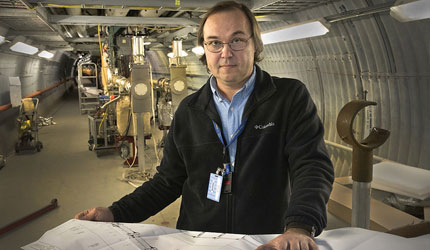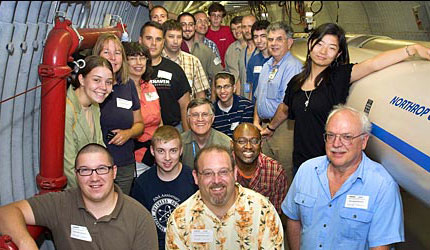Benefits of an EIC
An Electron-Ion Collider will maintain U.S. leadership and open new frontiers in nuclear physics while triggering technological breakthroughs that have broad-ranging impact on human health and national challenges
Investing in Our Future
Building the EIC will maintain and continue to expand U.S. leadership in nuclear physics and accelerator science—fields of science that are crucial to our technological, economic, and national security. It will also stimulate strong international collaboration, attracting the “best and brightest” to the U.S. to work on this frontier project and its associated technologies.
Hundreds of students will help to build and conduct research at an EIC. Some will go on to explore other new questions in physics, but many will apply their expertise in a range of careers that fuel the economy, provide for security, and pave the way to a healthier, brighter future for all.
Benefits Beyond Physics
Beyond sparking scientific discoveries in a new frontier of fundamental physics, building the EIC will also trigger broader benefits for society. Research on the technologies needed to make the EIC a reality is already pushing the evolution of magnets and other particle accelerator components. Some of these advances could lead to energy-efficient accelerators, thereby dramatically shrinking the size and operating costs of future accelerators used across science and industry to:
Brookhaven National Lab's EIC Directorate coordinates with domestic and international partners to deliver the EIC construction project.
Brookhaven National Laboratory advances fundamental research in nuclear and particle physics to gain a deeper understanding of matter, energy, space, and time; applies photon sciences and nanomaterials research to energy challenges of critical importance to the nation; and performs cross-disciplinary research on climate change, sustainable energy, and Earth’s ecosystems.







